“Whoever controls the media, controls the mind,” said rock star Jim Morrison in an interview for Rolling Stone magazine in 1969. Morrison, who died two years later, was the lead singer with the popular sixties rock band, The Doors. The same words, slightly altered to “He who controls the media controls the minds of the public” were later Tweeted by Noam Chomsky, who is described on line as an “American linguist, philosopher, cognitive scientist, historian, social critic, and political activist”. A busy chap, then, who probably has little time to watch television anyway, and is unlikely to choose to watch the sorts of programmes being exported around the world by the UK’s highly-productive audiovisual industry. Much of that output is still going to Europe, despite the UK voting to quit the European Union.
Why did that happen? Well, according to Paul Whiteley, who is Professor of Government at the University of Essex, it was Britain’s failure to recover fully from the worst recession in over 70 years, which meant that many people were feeling feeling discontented and unrepresented. The media were not good at explaining how the EU worked or what it did; I remember how difficult it was to get articles accepted by news desk editors who preferred doubt to certainty. The public also believed, according to various surveys, that decisions affecting Britain should be taken in Britain (even if they didn’t know what those decisions were). This ignores the limited powers of the EU itself, of course. It’s worth noting how some countries, such as Hungary and Poland, regularly flout EU rules without suffering anything more than a lot of grumbling by other member states and occasional vague threats. And, of course, few people have seriously argued for Britain to quit NATO, although NATO really can actually order (not politely request) Britain to go to war. The problem is that the people rely for information on the media, and where the EU is concerned, news about the EU has been scant and very often misleading. Or full of lies, to put it more accurately. The real issue seems to have been immigration: UK citizens wanted to see fewer ‘foreigners’ in their streets and supermarkets, as well as – strangely – in the National Health Service, which has long relied on them.
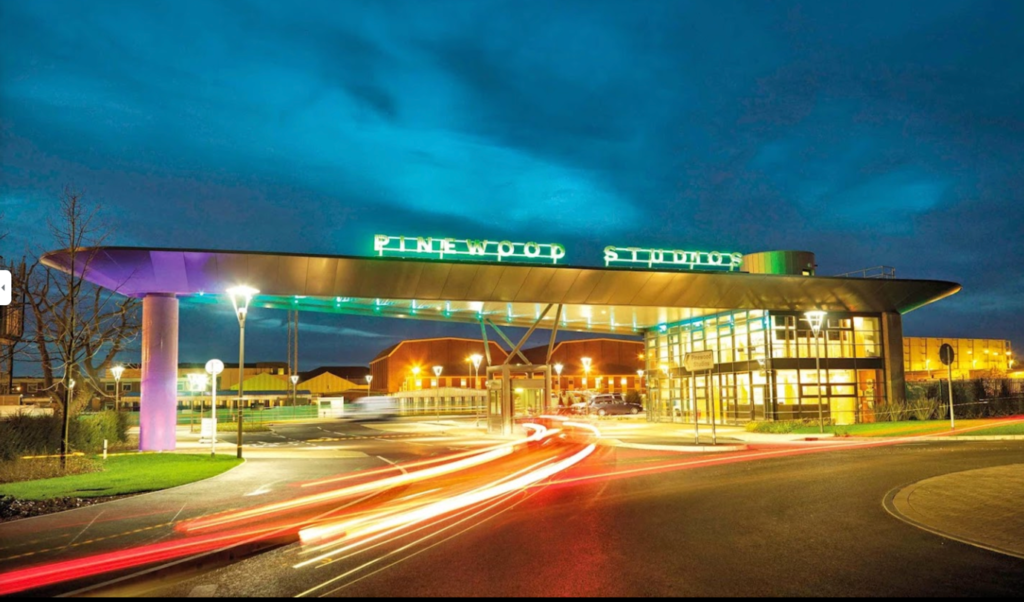
The continued influence of the UK audiovisual industry certainly displeases many European diplomats, for whom the market share of UK video-on-demand (VOD) programmes within the EU is considered to be too large. The consequences of the Brexit separation are still far from being fully understood. A working group of the Council of European Union judges wrote that there are too many British series, shows and films on the streaming platforms used by citizens of the 27. It is not the quality of this content that is in question, but once again the fact, seen from Brussels, that a post-Brexit production, whatever its nature, cannot be treated on the same level as previously. Or can it? Prior to Brexit, such programmes were, effectively, ‘in-house’ products; that is no longer the case. The document drafted by these European diplomats, first obtained by the British daily The Guardian, characterizes an inconsistency: “Although the United Kingdom is now a third country for the European Union,” reports the French language 24-hour rolling news channel, BFM, “its audiovisual content can still be considered as ‘works European’, as defined in the AVMS (Audiovisual Media Services) Directive. The assessment of these European officials is therefore that the UK enjoys an undue privilege.” Some would argue that it’s ‘undeserved’ on merit grounds, too. Some of the programmes being hawked around EU countries could fairly be described as little more than Scotch mist – nothing of substance at all, really, and without artistic value, although in most cases production values are quite high.
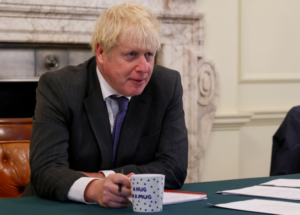
And yet, of course, however insubstantial the content may be, the media remains strangely influential, which is why Boris Johnson, when writing for the Daily Telegraph newspaper as their Brussels correspondent, was so keen on distorting facts about Europe and making up lies about EU decisions that there have even been books devoted to listing some of the more extreme examples. According to the New Statesman magazine, “He wrote stories headlined ‘Brussels recruits sniffers to ensure that Euro-manure smells the same’, ‘Threat to British pink sausages’ and ‘Snails are fish, says EU’. (It goes without saying that these stories were untrue.) He wrote about plans to standardise condom sizes and ban prawn cocktail flavour crisps.” None of this was true, of course. He also wrote, among other things, that EU rules would force British trawlermen to wear hairnets while fishing. He once described what he did in a BBC interview as “sort of chucking these rocks over the garden wall and I listened to this amazing crash from the greenhouse next door over in England as everything I wrote from Brussels was having this amazing, explosive effect on the Tory party – and it really gave me this, I suppose, rather weird sense of power.” A sense of power is, perhaps, not something any true journalist should relish, especially when it comes from telling lies and getting them believed.
LIES AS CURRENCY
He’s not the first journalist to print lies to achieve an effect – Hitler’s 1930s government did much the same to whip up hatred against Jews and to persuade Germans of their God-given destiny to rule the world – but it certainly influenced popular opinion in Britain. In the case of the UK, it didn’t take much, really: many British people seem to have a deep-rooted dislike of ‘foreigners’, which may not be unconnected with the difficulty many seem to have in learning languages. Some people still think of the UK as an imperialist country, or at least they wish it was. Johnson turned much of his journalistic fire on the then Commission president, Jacques Delors, and claimed credit for persuading Denmark to reject the Maastricht Treaty after claiming in a headline that “Delors plans to rule Europe”.

Like many of his claims, it was nonsense, as he was well aware; I knew and liked Delors, who was so ‘ambitious’ that he used to travel standard class on the train from Brussels to Strasbourg. He was a good man, even if he could come across as distant and reserved. As Maurice Fletcher wrote in the New Statesman, “Soon, a Europe of scheming bureaucrats plotting to rob Britain of its ancient liberties, or British prime ministers fighting gallant rearguard actions against an increasingly powerful superstate, or absurd directives on banana shapes, became the only narratives that many papers were interested in. They were narratives that exploited Britain’s innate nationalism, distrust of foreigners and sense of superiority.” The problem is that Johnson’s columns were well-written and funny, so they became popular. Other newspapers told their Brussels correspondents to file similar stories, so they did.
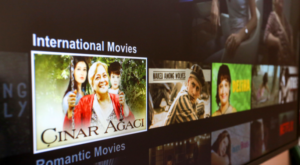
Lowering editorial and programme-making standards happens in a variety of ways. It comes more from programming choices than from production standards, with British television filled with game shows these days, complete with inevitably over-excited audiences screaming at the competitors, as well as a tendency to get rid of more mature presenters, especially women, in favour of younger ones, mainly male. But this sort of problem is not the preserve of the UK alone. “The dumbing down of American is most evident in the slow decay of substantive content in the enormously influential media,” wrote Carl Sagan in his book ‘The Demon-Haunted World: Science as a Candle in the Dark’, “the 30 second sound bites (now down to 10 seconds or less), lowest common denominator programming, credulous presentations on pseudoscience and superstition, but especially a kind of celebration of ignorance.” However, it’s not quality that is bothering diplomats inside the EU, so much as quantity.

France still sees itself as the originator (and still master) of the cinematographer’s art – France was the birthplace of cinema, after all – so the flood of UK-produced programmes causes unease. After all, the idea of cinema was French, with Auguste and Louis Lumière patenting their ‘cinematographe’ in 1895. Then along came former stage George Méliès magician, with special effects and his famous ‘Le Voyage dans la Lune’, which astounded viewers worldwide. At which point, enter Charles Pathé and Léon Gaumont, who founded the companies that still bear their names. They had the good fortune to employ Alice Guy, who started as a secretary but who displayed a huge talent for film-making, producing some 400 shorts during her startling career. She is credited with having invented the ‘film narrative’ and deserves much wider recognition within the industry. So, France takes a somewhat proprietorial view of cinema. France is still a major producer of films, albeit only coming in seventh in a global league table. Britain comes fourth, after the United States, India and China. Japan and South Korea come fifth and sixth.
EUROPEAN OR NOT?
The question troubling EU diplomats (and French film-makers) is how can the UK still be regarded as part of the EU when it comes to selling TV programmes and videos when in all other respects it clearly is not? The more xenophobic right-wing UK newspapers are, of course, up in arms about the possibility of there being any sort of limit on exports. Take the Daily Express, for instance, an ardently Brexit-supporting daily that seems to have a passionate hatred of anyone who isn’t British. “‘Small minded!’ EU sparks fury over ‘attack’ on UK TV as British shows slashed,” The Express screamed in a banner headline back in June. “Now, MP John Redwood has lashed out at the bloc claiming their attack on British TV shows their “continuing contempt” for the Free Trade Agreement,” it reported, going on to say that: “Mr. Redwood tweeted: ‘The EU attack on UK TV programmes shows continuing contempt for the Free Trade Agreement and their own Treaty rules about relations with neighbours.

The UK needs to push back hard, especially on the EU attempts to stifle GB/NI trade.’” It’s hard to see how shipping goods across the Irish Sea enters into a discussion on movie distribution. Incidentally, the former UK Prime Minister Sir Edward Heath once described Sir John Redwood to me during a TV interview as “just a bigot”. The paper then quoted the former leader of the anti-EU Brexit party (and before that the UK Independence Party), Nigel Farage. “This sums up the small-minded, protectionist club the European Union is,” he is reported as having said. This rather ignores the fact that the UK was part of that same “protectionist club”, presumably benefiting during that period from the protectionism it offered.
Does such reporting matter? It seems likely to influence mainly those who already share its world view, and in the case of the Daily Express, not very many of those. Looking at circulation figures in Britain, The Sun comes top with 1,371,190 sales, followed by the Daily Mail with 1,199,760. Their Sunday versions sell slightly fewer copies but still occupy the 3rd and 4th spots in terms of popularity. Both are well to the right of centre and have long been anti-EU. The similarly positioned but more strident Daily Express sells only 312,770, making it only Britain’s eleventh most popular newspaper. Its line is too far to the right for many people, with little to ameliorate its anti-European, even anti-foreigner stance. All of these newspapers are strongly opposed to immigration and are against the acceptance of asylum-seekers. Many readers, of course, buy newspapers mainly for their sports content, their film and television guides and for the weather forecast, none of which are affected by neo-nationalism.
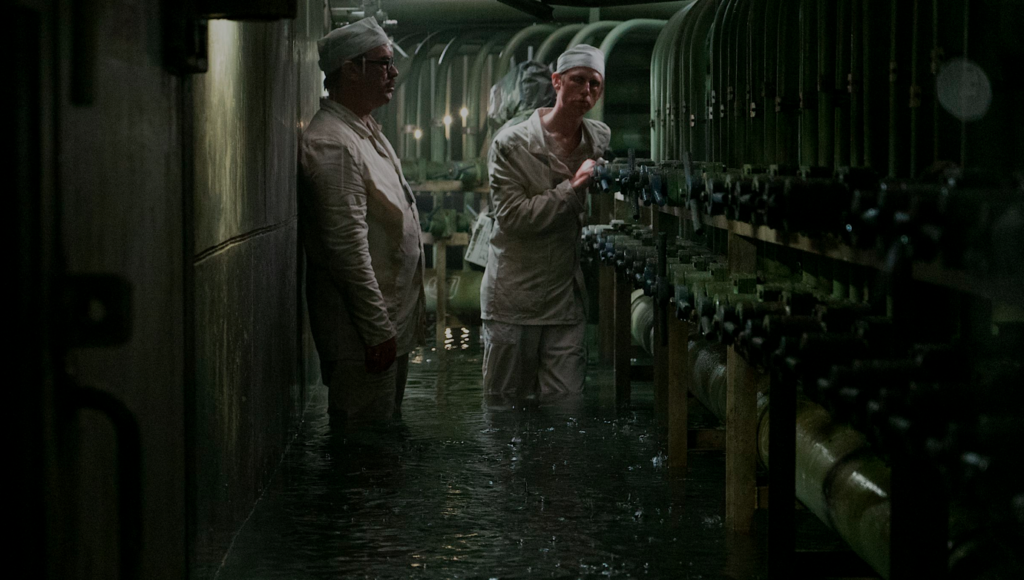
So, what British TV favourites are proving a hit across the Channel? The drama about Ukraine’s nuclear disaster, ‘Chernobyl’, made by Sky, appears to top the list (although I should point out that different lists give the popularity in different orders and sometimes with different programmes). Netflix’s ‘Dracula’ rides high in second place, as does ‘It’s a Sin’, made by All 4. Then comes iPlayer’s ‘His Dark Materials’, based on the fantasy books of Philip Pullman. Netflix is still selling the Rowan Atkinson comedy show Mr. Bean, while the little-known (in Britain) Virgin Streaming company does well with ‘The Feed’. BBC 1’s ‘Sherlock’, an updating to modern times of the Sherlock Holmes stories, is doing well, as is the strange (and very ‘male-orientated’) motoring show ‘Top Gear’. In Latvia, they like ‘Call the Midwife’ and Finland is apparently fond of ‘Downton Abbey’, all about a wealthy Edwardian family living in a massive country mansion with servants all over the place. As the old proverb puts it, ‘there’s no accounting for taste’, but there again they’re popular in the UK, too. There’s no doubt however, that were the UK to lose its market status as an EU country, sales of its TV and video shows would suffer. Now the politicians and news outlets that most eagerly called for the UK’s departure from the Union are getting angry, it seems, because the UK will no longer be regarded as a member state.
RULES AND REGULATIONS
The EU, however, does have rules under the Audiovisual and Media Services directive. “These days we can watch our favourite programmes,” explains the European Commission on its website, “not just on TV, but also online. These shows are subject to the rules of the single market.” And despite what Redwood and Farage may say, the UK is no longer in the Single Market. “The EU’s Audiovisual Media Services Directive (AVMSD) governs EU-wide coordination of national legislation on all audiovisual media — traditional TV broadcasts and on-demand service,” the Commission writes.
The latest review of the AVMSD was carried out in 2018 and guidelines have been issued and kept up to date. For instance, says the website, “Member States have to ensure that video-sharing platform providers under their jurisdiction adopt appropriate measures in order to protect minors from harmful content and all users from content containing incitement to violence or hatred and from any content whose dissemination would constitute an activity which is a criminal offence under Union law (namely public provocation to commit a terrorist offence, offences concerning child pornography and offences concerning racism and xenophobia.”

Rather more pertinent to the issue of British productions, however, is the second of those guidelines: “The Audiovisual Media Services Directive (hereinafter ‘the AVMSD’) lays down reinforced rules on the promotion of European works. Article 13(1) establishes that providers of on-demand audiovisual media services (hereinafter ‘on-demand’ or ‘video on demand (‘VOD’) services’) must ‘secure at least a 30 % share of European works in their catalogues and ensure prominence of those works’.” By ‘European works’, one has to assume the Commission and Council mean material produced not just in Europe but in the European Union itself. As you can see, it is not a blanket ban on UK-produced material, merely an insistence that a minimum proportion of the output of any service provider is of EU origin. Nobody is calling for a ban on ‘Dr. Who’ or ‘Dad’s Army’. In fact, the regulation is further clarified on-line: “Such constraints do not apply to on-demand audiovisual media services (VOD) providers.”
The Archyde website believes that the regulations should strengthen French cinema and film production. “The birthplace of cinema, France has always been at the forefront to support audiovisual creation, foster its effervescence and defend its exceptional character around a strong conviction,” it wrote on its website in October 2020, “creation cannot constitute a simple commercial good, subject to the general rules of free trade. From it proceeds a whole part of our culture, of our very identity. In this, it deserves special attention.” Of course, it’s always hard to decide what constitutes art and one person’s Leonardo da Vinci or Pablo Picasso is someone else’s crude graffiti-dauber. It’s a matter of taste. “Let’s reinvent our model,” the Archyde website argues, “by putting aside particular or corporate interests and promote French creation, by providing it with reinforced and lasting funding based on two intangible principles, equity and cooperation between the various players.”

It does point out, however, that “One of the conditions for success is equity. Fairness means above all correcting tax asymmetry and investment obligations with these global giants, such as Netflix, Amazon, Apple or Disney.” Making films and television programmes costs money, and with English the most widely-used and spoken language, it’s easier to market audiovisual productions made in it. To put it in context, English is the mother tongue of 1,132-million people, just ahead of Mandarin Chinese with 1,117-million. India is a major producer of movies, yet Hindi is the mother tongue of just 615-million people.
IS IT FAIR?
On the official website of the European Audiovisual Observatory (EAO), the UK was listed as the largest market for audiovisual products, even on the eve of it leaving the EU. In terms of the supply of audiovisual services, the EAO wrote that of the 968 pay-on-demand services established in Europe, 853 were based in the EU28 and of these, just 2% were owned by public service broadcasting organisations while 1% had a mixed ownership. “The United Kingdom was by and large the most prominent audiovisual market in wider Europe,” it said, “with 1,230 TV channels and 201 pay-on-demand services established in the country, many of which were targeting other European audiovisual markets.” It’s on that point, of course, that we start to run into difficulties. “One out of five television services established in the Europe by 2018 was accessible via digital terrestrial television (20%), and the rest could be accessed via cable, satellite, or Internet protocol television (IPTV),” according to the executive summary of the site. “Most television channels were pay/or premium services while 41% established in Europe were available free-to-air. The results were similar for the EU28 (now 27). The dominant business model for pay-on-demand services was subscription video-on-demand (SVOD) (59%), which came before transactional video-on-demand (TVOD)
(41%).”
EU diplomats have met to discuss the apparent unfairness of the present arrangement. By treating UK productions as if they came from the wider EU, there was talk of the “disproportionate” prominence of UK productions that some see as a threat to the cultural diversity of the European Union. The BBC reported on its website that: “It’s a concern for Max Rumney, deputy CEO of PACT, the trade body that represents TV and film producers in the UK, who thinks the industry is being ‘lumped in with the general dissatisfaction with the British’ and Brexit, fishing and sausage rows. He fears any move to remove European status from UK programmes would make it much harder for producers to raise funding for filming.” Rumney doesn’t think that excluding UK productions from what’s seen as EU output would be counter-productive, as “people will watch what they find compelling and entertaining and will find ways of doing that – we see that with younger audiences particularly.”
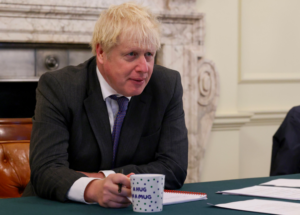
If you scratch the surface of many of these disagreements and discussions, it seems likely you’ll find traces of nationalism. I was once filming some of the Scottish fishing fleet setting out from Peterhead harbour, in company with a Scottish National Party (SNP) member of the European Parliament, the late Doctor Allan Macartney, a delightful man. I asked him why so many UK fishermen seemed to be opposed to the EU (presumably not because of Boris Johnson’s hairnets) and his answer surprised me. He said it came down, at least partially, to religion. “Many of the Scots fishermen are members of the ‘Wee Frees,’” he told me. The Wee Frees is a pseudonym for the Free Presbyterian Church, a fairly extreme Calvinist group that broke off from the mainstream in 1900 and is so strict that it doesn’t celebrate Christmas or Easter, nor permit any activity on a Sunday. They once expelled a follower for joining a golf club that permitted play on Sundays, even though the man concerned had never actually done so. Macartney went on to explain that many of the fishermen in Southwest England are members of another extreme Protestant Christian sect, the so-called Plymouth Brethren. The followers of both of these faiths reject the European Union because they see it as suspiciously ‘papist’, being based on the Treaties of Rome. They may not like Rome much but at least they don’t burn people at the stake these days.
ALLONS ENFANTS DE LA PATRIE
The Hamburgisches Welt-Wirtschafts-Archiv (HWWA) in Hamburg, Germany, and the Institute of International Affairs (IAI) in Rome conducted research into French Audiovisual Policy (FAP) because of, the researchers explained, what they called “France’s widely held belief that the current international environment is detrimental to French interests.” The report goes on to say that France is the country with the deepest misunderstanding of what the multilateral commitments undertaken since the GATT (General Agreement on Tariffs and Trade) of 1947 and particularly during the updating that took place in the Uruguay Round (1986-1995) which led to the formation of the World Trade Organisation (WTO) actually mean. “The many failures of the FAP are often attributed to this international legal environment,” says the report, which criticises the exceptionalism often apparent in French policy.
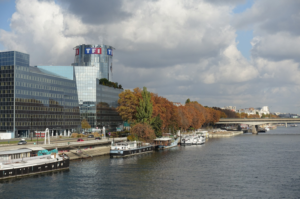
“France often forgets the implications of its membership in the European Community. The European Directive ‘Television without Frontiers’ (TWF) was largely drafted at French insistence and is closely in line with the main aspects of the FAP (in particular, with its quota and subsidy systems). As a result, France tends to believe that it represents the European interests.” But that was then, and this is now. The report was drawn up before the European Economic Community (EEC) turned into the European Union (EU) and long before it expanded to include 28 (now reduced to 27) member states. The aim at the time was to encourage pan-European broadcasting companies to be set up, working in more than one language. As everyone knows, that didn’t happen, or not much (with the noble exception of Euronews, which broadcasts in five languages: English, German, Spanish, French and Italian). A lot of water (much of it rather murky water) has passed under the bridge since then.
For one thing, some French thinkers believe that the EU has been a plot to impose Anglo-Saxon values on the rest of Europe. Despite the ludicrous (and largely unchallenged) Euro-sceptic nonsense that appeared in British newspapers ahead of the referendum, the UK could chalk up some successes for the EU, such as peace across the continent, greater cross-border unity, the world’s largest single market, the ability for people to travel freely and live in each other’s member states, breaking up unhealthy monopolies and environmental improvements, to name but a few. If these were reported at all in the UK, the EU was often left out of what became a story about ‘British achievements’.

“Success has many fathers, failure is an orphan,” is a saying thought to have originated with Benito Mussolini’s son-in-law, although John F. Kennedy used it following the Bay of Pigs fiasco, too, as, I suspect, have many others. I first heard it from the late John Hume, a former Northern Irish MEP and long-term campaigner for peace. What the British public got was a load of untrue and xenophobic nonsense, such as the claim that EU membership cost the UK £350-million (€409-million) a week; that the UK would continue to benefit from the EU’s single market after leaving; that millions of Turkish citizens would be flocking to Britain because their country was about to join the EU and – most deceitful and unpleasant of all – that immigrants from the EU were destroying the National Health Service, instead of supplying a large proportion of its skilled medical staff. I suppose we must accept that the ‘journalists’ writing this palpable nonsense were aware it was untrue? The UK’s leading newspapers decided to whip up a frenzy of ultra-nationalism with their totally phoney patriotic fervour. Strangely, they are still pumping out anti-European nonsense, just to ensure that nobody has a change of heart.
Now those same journalists (or others like them) are up in arms that the UK’s lucrative audiovisual industry may find its output not be counted as originating in the EU for much longer. It’s certainly regrettable for the industry itself and for its workforce, but it shouldn’t come as much of a surprise.
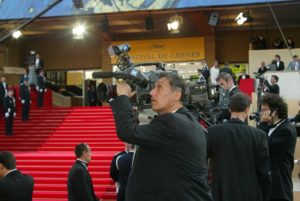
Bloomberg reports that a working group at the European Council, where government leaders meet, have discussed “the disproportionate presence of U.K. content in the European video-on-demand quota, and the effects on the circulation and promotion of diverse European works.” The EU’s Audiovisual Media Services Directive was supposed to limit non-EU material to no more than 30% of on-demand video content. The aim was to rein in the dominance of audiovisual productions from the huge US providers, but now that the UK has chosen to pursue its path outside the EU, the rule should apply to British products, too, shouldn’t it? That’s the point that is unclear so far. Under the Audiovisual Media Service Directive, broadcasters must reserve a majority proportion of their transmission time for European works. The transmission time counted excludes the time appointed to news, sports events, games, advertising, teletext services and teleshopping. The question is that nobody seems certain if UK output should count as European or not. The UK is certainly outside the EU now, but it’s still a signatory to the Council of Europe’s European Convention on Transfrontier Television, which makes British audiovisual products European as far as the AVMSD is concerned. For the moment, then, British audiovisual productions would seem to be safe and France’s concerns are not – so far, at least – giving too much rise to concern. The problem is not likely to go away, however.
The whole affair begins to be reminiscent of Miguel de Cervantes’ early 17th century romance, Don Quixote, in which the eponymous hero charges at windmills with his lance, believing them to be giants. Ever since, the expression “charging at windmills” has come to mean in English a pointless act of bravado that could well go wrong, as indeed it did for the deluded knight when his lance caught in a rotating sail. In this case, however, it’s hard to tell if France is Don Quixote or a windmill and imaginary giant. Time will tell, I suppose. I can well understand the frustration of French audiovisual companies and their political representatives but there’s no easy way to sidestep the Council of Europe’s European Convention on Transfrontier Television. It looks like being one audiovisual event that may run and run with no guarantee of a happy ending for either party.

